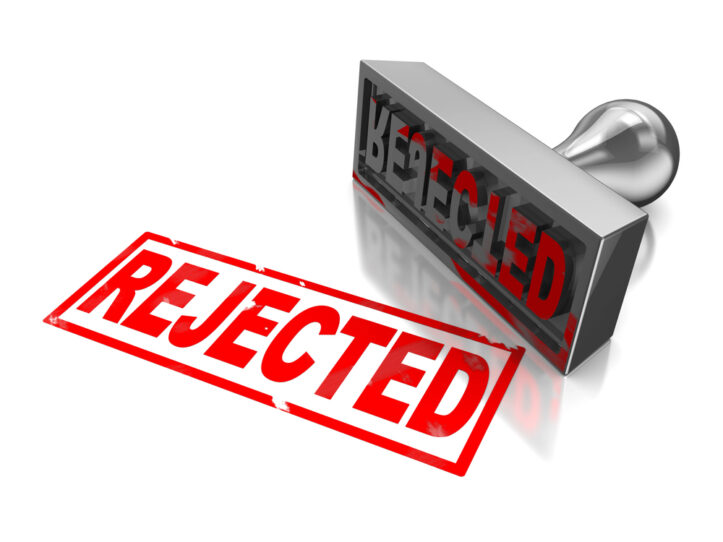Fairfax felony pleas- Virginia lawyer on their court rejection
Fairfax felony pleas- Virginia lawyer on their court rejection

Fairfax felony plea deals will be rejected by the second judge if the duplicate deal was rejected by the original judge
Fairfax felony pleas will be rejected by the second Circuit Court judge if the duplicate deal was rejected by the original judge. As a Fairfax criminal lawyer, I share with you the following announcement in the September 9, 2025, county bar association (FCBA) emailed announcement that elucidates the foregoing situation: “Reminder on the Circuit Court Plea Rejection Bench Policy: The Court adopted the following policy with respect to plea agreements: 1. When a plea agreement pursuant to Rule 3A:8(c)(1)(c) is rejected by a judge, the identical agreement cannot be presented ot another judge since it is a matter already decided by the Court. 2. However, in the event that the parties make any material change to the plea agreement, it may be presented to another judge of the Court for that judge’s consideration. It is up to that other judge to determine whether that change is ‘material.’ 3. This policy does not apply to a plea that is rejected because it factually involves a legal fiction. Such pleas may be presented in their identical form to a different judge. 4. When a plea agreement is rejected, the initial plea form should remain in the court file. 5. Any rule 3A:8(c)(1)(c) plea agreement rejected by the Court is subject to the terms of his plea. If the defendant does not withdraw the plea, the case will be heard by another judge, unless the parties agree otherwise. In any event, once a plea agreement is rejected, and in accordance with Rule 3A:8(c)(4), neither party is bound by it. 6. The Court expects both the Commonwealth and the defense to be prepared at the time of the plea to explain why a Rule 3A:8(c)(1)(c) plea agreement should be accepted by the Court.” September 9 FCBA e-news.
What do the Virginia Code and Supreme Court rules say about binding plea deals?
Virginia Code § 19.2-254 provides that: “Upon rejecting a plea agreement in any criminal matter, a judge shall immediately recuse himself from any further proceedings on the same matter unless the parties agree otherwise.” Virginia Supreme Court Rule 3A:8 elucidates further about Fairfax felony pleas and pleas in all Virginia circuit courts: ” If the agreement is of the type specified in subdivision (c) (1) (A) or (C) and if the court rejects the plea agreement, the court must inform the parties of this fact, and advise the defendant personally… that the court will not accept the plea agreement. Thereupon, neither party will be bound by the plea agreement. The defendant has the right to withdraw his plea of guilty or plea of nolo contendere and the court must advise the defendant that, if he does not withdraw his plea, the disposition of the case may be less favorable to him than that contemplated by the plea agreement; and the court must further advise the defendant that, if he chooses to withdraw his plea of guilty or of nolo contendere, his case will be heard by another judge, unless the parties agree otherwise.” Virginia S. Ct. R. 3A:8(c)(4).
Why is the Fairfax felony pleas rejection bench policy being announced at this time?
Fairfax felony pleas (where trials are not requested) lead to the scheduling of a guilty, nolo contendere (no contest) or Alford plea hearing. Ordinarily, the pleading criminal defendant and their lawyer will not know their plea judge’s name earlier than the evening before their plea hearing. The Fairfax Circuit Court (FCC) has fifteen judges, who range widely in their approaches to accepting or rejecting binding plea deals, and widely in their sentencing approaches. As a Fairfax criminal lawyer, my reaction to my designated judge in any case runs from glee to neutrality to disappointment. Of course, people are not always predictable, and the seemingly favorable judge will have their hot buttons that make them less favorable, and the judge that causes deep concern in Virginia criminal defense lawyers sometimes can delight the defense. Why is this FCC policy now being announced? Is there more administrative efficiency needed now than ever before in that regard? Is it because the prosecutors under the current Fairfax commonwealth’s attorney (in office over five years) more often agree to negotiate on sentences versus mainly on counts and within sentencing guidelines sentences, where the latter approach was much more common during the two predecessor prosecutorial administrations that were in place for decades? Certainly, before this current plea rejection policy came into being, I was able to get more than one plea deal accepted by Judge B after being rejected in duplicate form by Judge A.
What does “material” mean in the FCC Plea Rejection Bench Policy?
The Fairfax felony pleas policy provides that “However, in the event that the parties make any material change to the plea agreement, it may be presented to another judge of the Court for that judge’s consideration. It is up to that other judge to determine whether that change is ‘material.'” This, then, is an opportunity for the defense and Fairfax assistant commonwealth’s attorne to come together to reach a modified plea agreement that the new judge will accept as having a “material” change. With a judicial rejection of a plea agreement, either party is free to seek further negotiation, to pursue a settlement completely different from the original plea deal, or to simply proceed to trial.
Fairfax criminal lawyer Jonathan Katz relentlessly pursues your best defense against Virginia criminal and DUI prosecutions. Make a major positive difference in your defense by scheduling your free in-person confidential consultation with Jon Katz about your court-pending prosecution, at 703-383-1100, Info@KatzJustice.com and (text) 571-406-7268.

